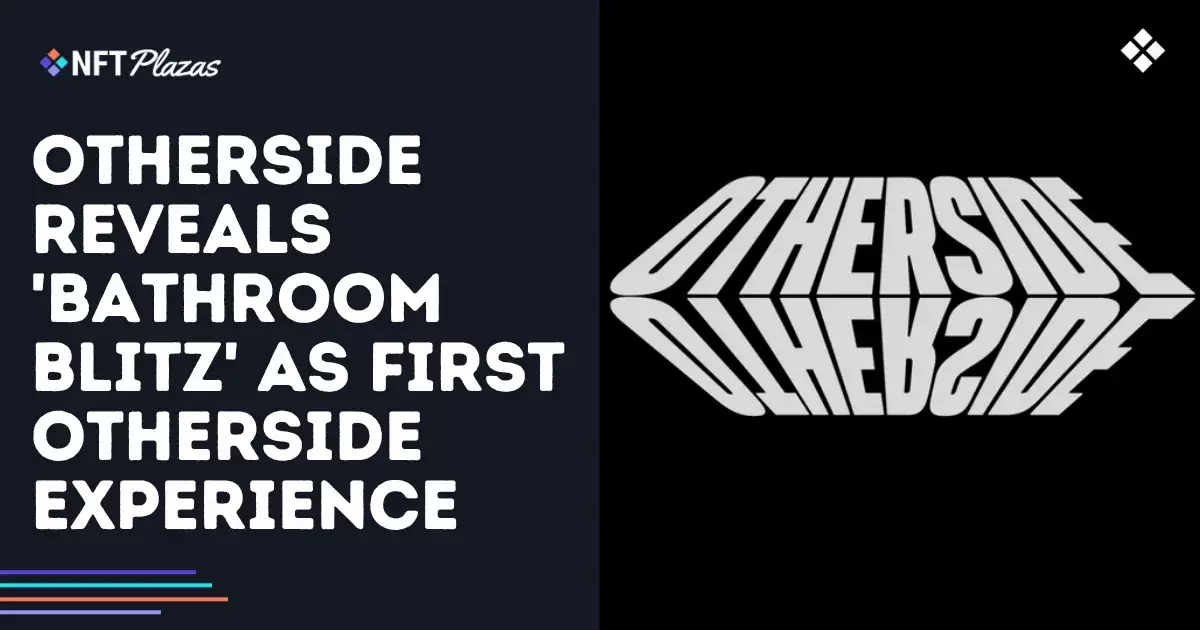Yuga Labs is charging headfirst into the metaverse hype with its new game, *Bathroom Blitz*, an 8v8 multiplayer shooter set inside a shrunken version of the BAYC bathroom. At first glance, this might seem like a bold attempt to pioneer persistent gaming within an NFT-driven ecosystem, but make no mistake—this is largely an exercise in overpromising and underdelivering. The promise of a “persistent, always-on virtual space” has become the Holy Grail for NFT projects desperately trying to justify their existence beyond mere digital collectibles. However, a fast-paced shooter inside a cramped bathroom setting is hardly the groundbreaking innovation it’s billed to be. It feels more like a tech demo designed to win over skeptics while masking a glaring lack of compelling gameplay and meaningful user engagement.
Voyager XP: Gimmick or Genuine Progression?
The rollout of the Voyager XP system, meant to track and reward player involvement, sounds like an attempt to foster a traditional gaming ecosystem within a fragmented NFT environment. While the concept of progression and engagement tracking is standard in modern games, its implementation here risks becoming a shallow metric that only incentivizes superficial activity rather than sustained skill or community building. Beyond acting as a performance testbed for network infrastructure, Voyager XP does little to address the deeper issue: what keeps players genuinely invested once novelty fades? Without a strong, engaging core experience, XP systems become little more than busywork . For all its technological veneer, Voyager XP seems less a stride towards meaningful gameplay and more a ploy to manufacture a sense of value in an otherwise ephemeral space.
Scalability Illusions with Meet Me at the Clubhouse
Yuga Labs’ decision to upgrade The Clubhouse social hub to support 500 users simultaneously may appear as a major step forward, but we should view this cautiously. Scaling virtual social spaces has been a notorious challenge, especially for NFT-centric platforms that lack the user base of mainstream online communities. The expanded capacity is commendable, yet the environment remains niche and cryptic for most players and non-investors alike. By focusing so heavily on infrastructure rather than content and accessibility, Otherside risks alienating new users who are not already steeped in the BAYC universe. Deeplink integrations may facilitate easier access to chat environments, but make no mistake—the underlying issue of fostering genuine community remains unsolved. Social hubs feel more like networking tools for NFT holders than places with organic, vibrant interaction.
Content Creation Under Corporate Control
One might applaud Yuga Labs’ move to release development tools and assets to external creators and Otherdeed holders, ostensibly democratizing content creation on Otherside. However, this openness should be scrutinized. Most participation tools—emotes, stickers, custom objects—lean heavily on microtransactions and embedded royalty structures that benefit Yuga Labs and top creators disproportionately. The promise of “creator control” masks a platform tightly governed by corporate interests. Rather than fostering a truly decentralized creative ecosystem, the royalties and asset restrictions effectively trap creators in a curated environment, limiting innovation outside predetermined guidelines. This wrapper of decentralization is misleading and risks stymieing genuine grassroots creativity.
The Illusion of Future Ambition Masking Present Limitations
With the announcement of Otherside Outbreak’s release in August and aspirations for broader persistent-world launches, Yuga Labs paints a future brimming with technological marvels. But this forward-looking rhetoric is a classic strategy to divert attention from current shortcomings—a lack of varied gameplay, shallow social experiences, and the potential fragility of the platform’s infrastructure. Testing concurrency is a necessary first step, but it hardly constitutes a compelling game or virtual world. The meta-narrative remains that Otherside is still in beta, an experiment in search of excitement and mass adoption. Until Yuga Labs delivers actual depth and accessibility, Otherside risks becoming another cautionary tale in NFT gaming—a high-concept project fueled more by speculation than substance.

